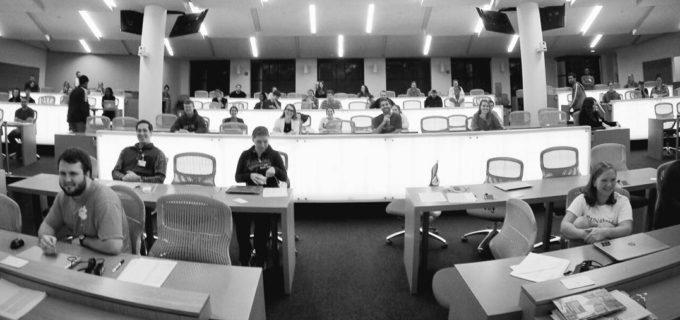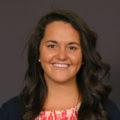
Get the latest articles delivered directly to your inbox!
Our Contributors
Class of 2022
Kyle Duke
Austin Foster
Charlotte Leblang
Ross Lordo
Class of 2021
Dory Askins
Connor Brunson
Keiko Cooley
Mason Jackson
Class of 2020
Megan Angermayer
Carrie Bailes
Leanne Brechtel
Hope Conrad
Alexis del Vecchio
Brantley Dick
Scott Farley
Irina Geiculescu
Alex Hartman
Zegilor Laney
Julia Moss
Josh Schammel
Raychel Simpson
Teodora Stoikov
Anna Tarasidis
Class of 2019
Michael Alexander
Caitlin Li
Ben Snyder
Class of 2018
Alyssa Adkins
Tee Griscom
Stephen Hudson
Eleasa Hulon
Hannah Kline
Andrew Lee
Noah Smith
Crystal Sosa
Jeremiah White
Jessica Williams
Class of 2017
Carly Atwood
Laura Cook
Ben DeMarco
Rachel Nelson
Megan Epperson
Rachel Heidt
Tori Seigler
Class of 2016
Shea Ray
Matt Eisenstat
Eric Fulmer
Geevan George
Maglin Halsey
Jennifer Reinovsky
Kyle Townsend
Join USCSOMG students on their journeys to becoming exceptional physician leaders.

Patients: Teachers for Life
Have you ever thought about what type of learner you are? Visual? Auditory? Kinesthetic? A combination of two or all three? Maybe you have different learning styles for different tasks and information. It’s amazing to sit down and think about the variety of different ways that each of our brains work to process and store information. I began considering this concept at the beginning of my internal medicine rotation. On internal medicine, you get to know many of your patients relatively well. Many of my patients were hospitalized for at least three days. Others were there for much longer. A few were there for the whole three weeks that I was part of the medical teaching service team. One morning, a patient and I got into a conversation and she asked me this seemingly simple question: “How much new information do you learn each day?”
When thinking about the medical field and using the terms “learn” and “new information,” your mind almost automatically jumps to facts and information pertaining to the disease or condition. That makes sense because each day on internal medicine consists of a lot of “new” – new lab results, new vitals, new imaging, new physical findings, new differential diagnoses. Internists depend on comprehensive understanding of fundamental and clinical science, critical thinking and problem-solving daily in order to manage multiple comorbidities each patient may have. What our minds don’t automatically think about is the learning that takes place in other more basic ways during the care process.
The morning after I had that conversation with my inquisitive patient, I decided that, if I had the opportunity, I was going to start asking each of my patients one question: “If you could teach every person in the whole world one thing, what would it be?”
Here are a few of the answers I got:
- Dignity
- It’s okay to eat cake for breakfast
- How important it is to tell the truth
- Learn from everything
- The importance of friendships throughout your life
- Give too much, rather than not enough
- Express forgiveness daily
- How to cook a beer can chicken
- Stop trying to keep up with the Joneses
- Adopt a dog at least once in your life, and then feed it steak
- You may not always have the chance to lead by example, but take advantage of the opportunity when you do
- Don’t underestimate yourself
Maybe you personally activate your brain by reading aloud. Or gain learning from what you can directly experience or tasks you perform. Or maybe illustrations and diagrams help you remember details. All of those methods of learning and applying information are of great value. But after my recent experiment, I hope I will always remember that some of the simplest and most impactful lifelong learning can come from patients and their perceptions. For me and anyone else who is intent on gaining knowledge about the kind of physician they want to be, that’s a lesson well learned.
I grew up in Charlotte, North Carolina before moving to Chapel Hill to spend my undergraduate career as a Tar Heel. I majored in biology, with a minor in chemistry, and consider myself extremely fortunate to have had many unique experiences in my life thus far. I worked as a research assistant at the North Carolina Jaycee Burn Center and in the Department of Genetics at UNC, interned with Carolinas Laparoscopic and Advanced Surgery Program (CLASP) at Carolinas Medical Center in Charlotte, and spent time as a member of a Global Medical Training team that set up temporary rural medical clinics in Panama. I thrive on adventure, am a travel enthusiast, and enjoy kayaking and exploring new places in my free time. I am passionate about improving quality of patient care, and hope to pursue a career in pediatric endocrinology, anesthesia, or internal medicine. I am honored and excited to be a part of the USCSOMG Class of 2018–a group of truly compassionate, intellectual and driven individuals.
Copyright 2021 USC School of Medicine Greenville


